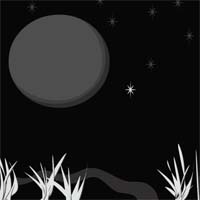 From now until the Winter Solstice on December 21st, we will be experiencing some of the year’s darkest, shortest days.
From now until the Winter Solstice on December 21st, we will be experiencing some of the year’s darkest, shortest days.
I used to hate stumbling around with the kids and their bookbags at 5 p.m. in the early dark. I still find it harder to rise at 6:30 a.m. to walk the dog before sunrise. Most of us find summer more pleasant with its long days and bright mornings. But let’s pause for a moment, and sink into our inky situation.
Let’s consider dimming the lights further, using only candles at dinner, and crawling into bed much earlier. Doesn’t the thought of doing all that relax you? Now is a good time to imagine how dark the world was before man illuminated it. Invite your kids or a friend to stand in a windowless bathroom or closet with you (you’ll be giggling of course), seal out the light seaping in from the door, and talk about how dark darkness is. Sometimes when I’m in the country walking the dog at bedtime, I switch off my flashlight and meditate on the dark for as long as I can stand it. Darkness makes us nervous, since in the dark, we must create new ways to see.
But just as seeds need the dark to germinate, we need more dark for our health. Here’s a webpage on the nourishing, de-stressing hormone melatonin, which the body miraculously secretes as soon as the sun goes down (possibly making us crave more sleep as the days get shorter). But because modern light pollution is throwing our bodies out of whack, we’re not producing as much melatonin as our grandparents did.
I found a wonderful website called SavetheMilkyWay.com, which details the risks of becoming too detached from the natural darkness of the night sky. “Every time you gaze into the heavens you reaffirm your cosmic connection,” writes the site’s creator Jack Troeger. “…The stars are your ancestors.” So turn your mind’s eye to the darkness, dim the lights, get to bed early, and prepare your body for the advancing season of light.
